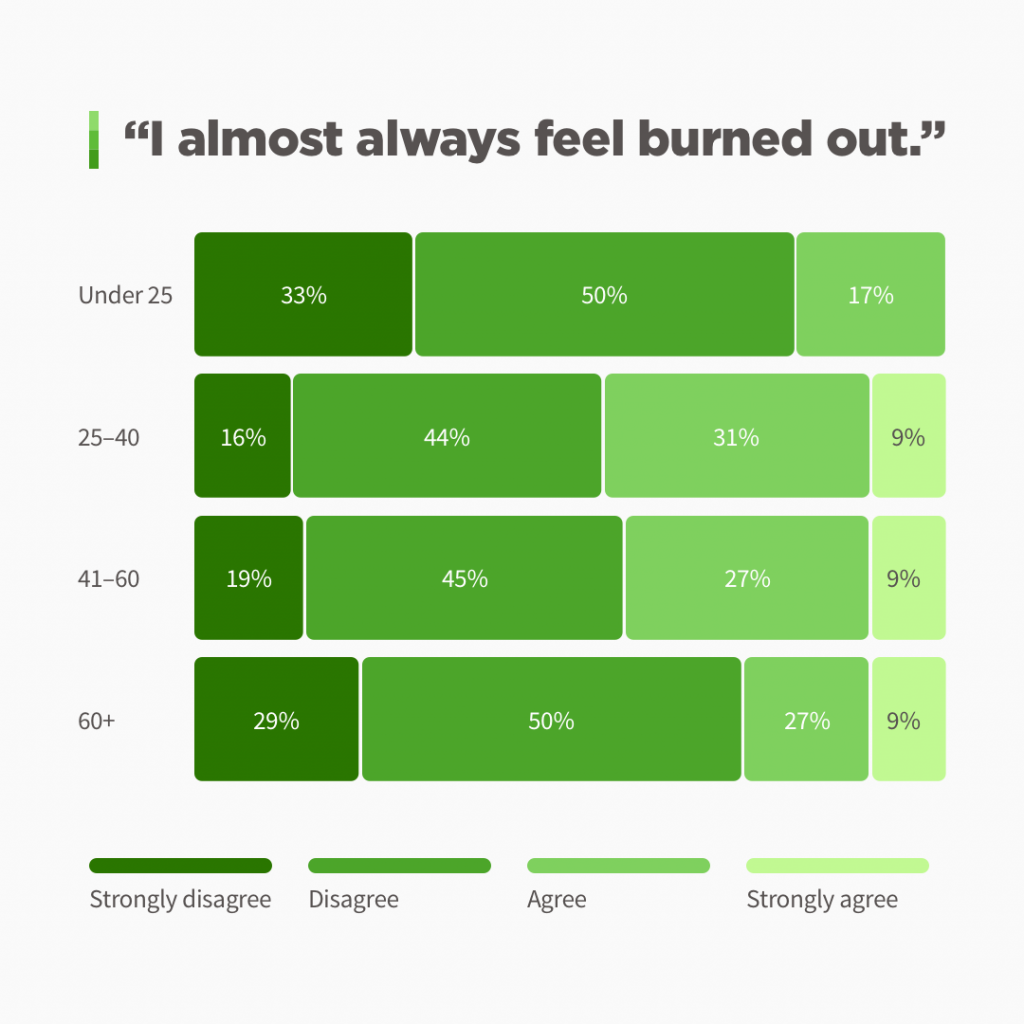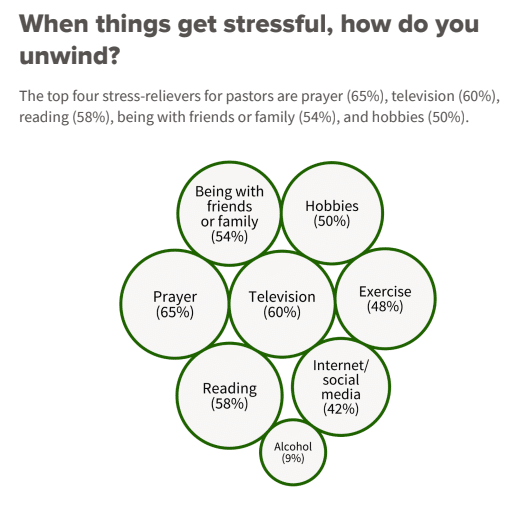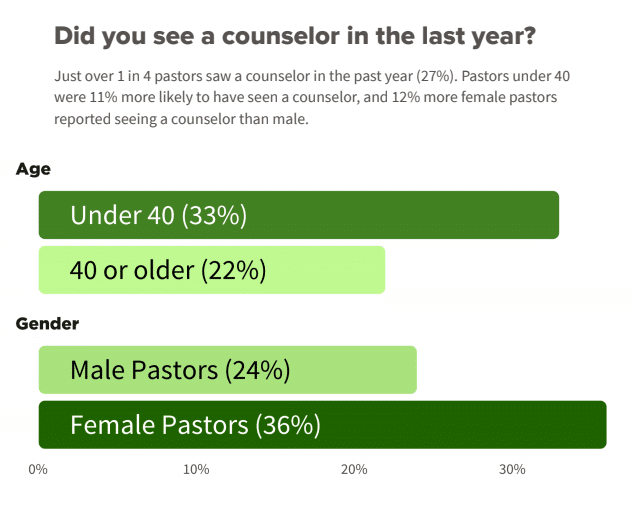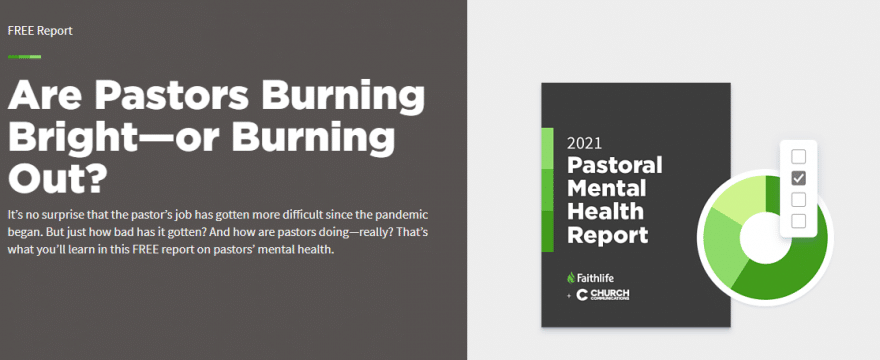We talk a lot about mental health within the Church, but what about the mental health of leadership and pastors? Being spiritual leaders, working 40-60 hours a week, and many times working with broken people can be hard. Pastors face exhaustion, may struggle with their own pastoral anxiety, and experience pastoral burnout. If we are wanting to truly make church a place for healing, we ourselves need to take the first steps as Christian counselors, pastors, elders, and leaders. Church Communications, the people who put on the Thrive & Cultivate conference, along with Faithlife, together a survey for pastors about mental health, burnout, and leadership.
If you want to download the results, you can get them here. It’s a quick read but I feel is also telling of our current situation. Three points that I pulled out from the survey? Pastors are feeling burn out more than they should, pastors have a broad set of emotional regulation techniques (some I don’t agree with), and happily, many pastors are going to see a counselor.
Pastoral Burnout
Pastors work a lot. Sometimes boundaries are hazy, sometimes they don’t exist. Many times your roles include youth pastor, technician, and janitor. Senior pastors are in charge of leadership, sermons and prep, as well as leading the compassion and hospitality ministries. And while the chart below says that under 25 have not yet experience burnout compared to 25-60, they may be single without children, and still hoping to work “hard enough to get kids to come” which is part of that poor boundaries. The 60+ population are definitely those who are tried and true and it would make sense they have better rates of burn out.

Pastoral Coping Skills
Let me define up front that a coping skill is a way to regulate your emotions. It is not a way to distract yourself from your problems. While I did not create this survey, I read “how do you unwind” not as a coping skill, but will look at the results in a similar vein.
When I look at the chart below, I love that prayer is a coping skill used along with being with people, hobbies/reading, and exercise. Because it says unwind, I understand television and internet being on here, but in a clinical setting, this is a poor long-term coping skill as it’s only a distraction. I will say as a clinical counselor, the 9% of people who put alcohol, it’s more concerning as this is where people can end up using alcohol to deal with their emotions.

Pastors Seeing Counselors
I’m going to be honest, 27% of pastors seeing counselors is a great percentage as the general population “[i]n 2019, 19.2% of adults had received any mental health treatment.” [CDC] I don’t have any research to support this claim but pastoral work is more stressful emotionally than many other careers so I’d love to see that percentage even higher if it is is needed. (For my counselors out there, the same is true for us)

So having read through the survey, what are your thoughts?
